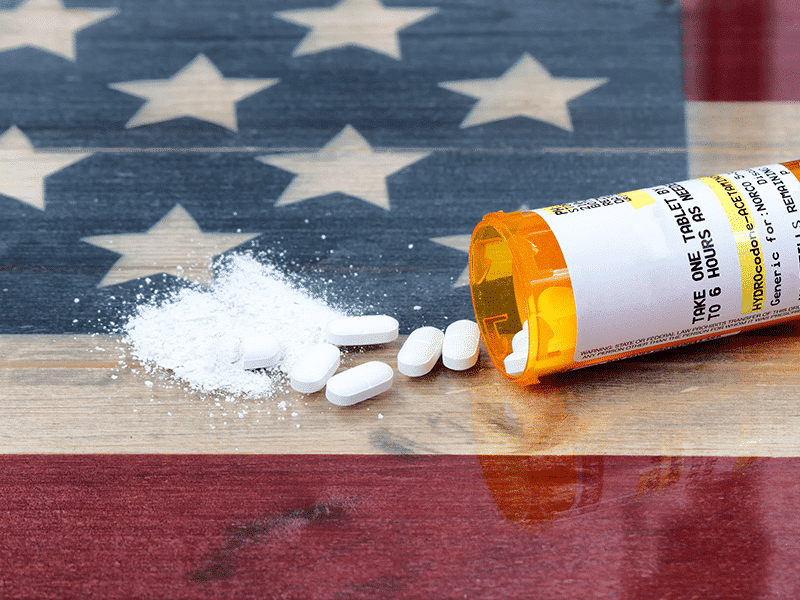From the Project CBD Archives:
Drug Memories: CBD & Addiction
There is a growing body of evidence that suggests CBD can aid in addiction recovery.
Medical Cannabis Can Help America’s Opiate Crisis
A doctor discusses a neglected treatment option for opioid addiction: medical marijuana.
How Does Cannabis Impact Alcohol Consumption?
Scientists are studying the role the endocannabinoid system plays in alcohol addiction and related mood disorders.
CBD vs. Alcohol
An unfortunate slogan of the cannabis legalization movement has been “Regulate cannabis like alcohol.”
From the Project CBD Patient Survey:
See the full survey here.
145 survey respondents reported taking CBD for addiction
49% Female | 48% Male | 3% Prefer not to say
Most participants using CBD for addiction reported being addicted to alcohol (68%), tobacco (38%), and/or opiates (36%). A smaller percent reported being addicted to benzodiazepines, amphetamines, cocaine, sleeping medications, ketamine, food, sugar, caffeine, and high THC cannabis. A majority of participants using CBD for addiction (55%) reported having more than one addiction. The most common combinations were alcohol and tobacco, alcohol and opiates, and opiates and tobacco, in that order. Participants taking CBD for addiction were very likely to report that they were also taking CBD for mood issues (78%), pain (69%), sleep problems (58%), and PTSD (30%).
Types of Addiction:

Participants were asked what their primary recovery goal was: to avoid a relapse (stop using the substance), use less of the addictive substance, or manage the symptoms of withdrawal/detox. Most stated that they were trying to abstain from their addictive substance(s).
Primary Goal of Recovery:
- 70% “I’m trying to abstain/avoid a relapse.”
- 23% “I’m trying to use less of the substance I’m addicted to.”
- 7% “I’m trying to get through detox or withdrawal.”
CBD appeared to be extremely helpful for getting off and staying off opiates. This is consistent with observational studies that have noted that many patients voluntarily decrease the number of opiates they are using—or go off opiates completely—when they use them in conjunction with cannabis, as well with animal and preclinical studies suggesting that cannabis and CBD may reduce the risk of relapse.
CBD was also reportedly helpful for reducing or eliminating alcohol consumption. It was comparatively less helpful as a smoking cessation aid. Twenty-four percent of tobacco users experienced no change, and 4% report using more tobacco after introducing CBD.
Changes in Substance Use:

Scientific Research on CBD & Cannabis for Addiction/Alcoholism:
- CBD as an Intervention for Addictive Behaviors
- CBD reduces cigarette consumption in tobacco smokers
- Inhibition of monoacylglycerol lipase enzyme reduces nicotine withdrawal
- CBD inhibits the reward-facilitating effect of morphine
- Cannabidiol, a nonpsychotropic component of cannabis, inhibits cue-induced heroin seeking and normalizes discrete mesolimbic neuronal disturbances
- Differential effect of cannabinol and cannabidiol on THC-induced responses during abstinence in morphine-dependent rats
- Impact of Cannabis Use during Stabilization on Methadone Maintenance Treatment
- Medical cannabis laws and opioid analgesic overdose mortality in the United States, 1999-2010
- Dysregulation of cannabinoid CB1 receptor and associated signaling networks in brains of cocaine addicts and cocaine-treated rodents
- Comparison of CBD, antioxidants, and diuretics in reversing binge ethanol-induced neurotoxicity
- Transdermal delivery of CBD attenuates binge alcohol-induced neurodegeneration in a rodent model of an alcohol use disorder
- CBD for the treatment of cannabis withdrawal syndrome
- Cannabis use disorders are comparatively prevalent among nonwhite racial/ethnic groups and adolescents
- CBD Counteracts Amphetamine-Induced Neuronal and Behavioral Sensitization of the Mesolimbic Dopamine Pathway
- CBD regulation of emotion and emotional memory processing: relevance for treating anxiety-related and substance abuse disorders
- Early phase in the development of CBD as a treatment for addiction: Opioid relapse takes initial center stage
- Epigenetic mechanisms associated with addiction-related behavioural effects of nicotine and/or cocaine: implication of the endocannabinoid system
- Effects of Cannabidiol on Morphine Conditioned Place Preference in Mice





